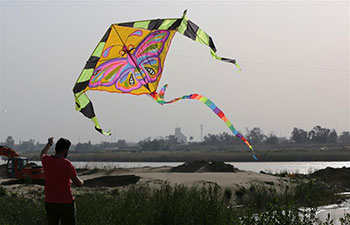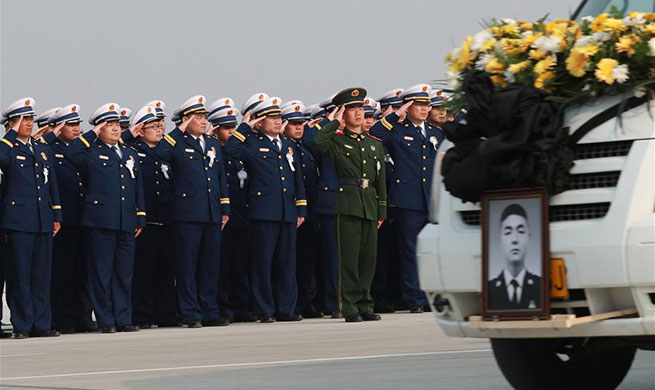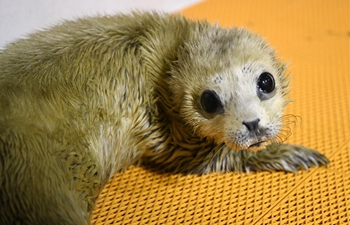HELSINKI, April 6 (Xinhua) -- While foreign and security policy has not been much of a theme in the current Finnish electoral debates so far, the discussion of Finland's relationship with NATO has got a new twist this week.
Antti Rinne, the prime minister hopeful and chairman of the poll-leading opposition Social Democratic Party questioned the realism of Finland joining NATO. In an interview by a Finnish commercial TV channel, Rinne said he was not at all convinced that Finland would be "accepted as a NATO member if Finland applied."
Finland is not a NATO member but its "enhanced partner for peace." According to NATO's official website, Finland is one of five countries, known as "Enhanced Opportunity Partners," that make "particularly significant contributions to NATO operations and other Alliance objectives."
The option to join NATO has been described by politicians and commentators as a "fire insurance" that Finland can resort to in dire circumstances.
Finnish President Sauli Niinisto told the Financial Times last summer that the mere possibility that Finland could apply for NATO membership "as such strengthens Finnish security."
Kreeta Karvala, a commentator for the evening paper Iltalehti, said Rinne had in practical terms terminated "the fire insurance policy."
Anna Wieslander, the director for Northern Europe at the U.S. think tank Atlantic Council, was quoted by Finnish media this week as saying that the NATO Article Five security guarantees should be extended to cover "close partners" such as Finland and Sweden.
Wieslander noted that the two "informal allies" would probably be given aid by NATO and be expected to act in return. She warned, however, that possible aid would depend on circumstances and the position of the two enhanced companions would possibly not be clear to all.
Heikki Patomaki, professor of Internaitonal Relations at the University of Helsinki, told Xinhua on Friday that, in reality even security guarantees under NATO Article Five are also subject to political contingencies.
"There is no higher international level that would supervise and sanction adherence to acting in line with Article Five," he said.
"No unilateral declaration would be enough, and this would require some sort of legal authorisation," Patomaki noted. He added that people backing the idea of pushing Finland closer to NATO perhaps consider that the arrangement could be processed in parliament as a mere notification, rather than as a ratification of international agreement.
In the election debates during the week, the conservative National Coalition and the Swedish People's Party have repeated their positive stance towards joining NATO. Conservative leader Petteri Orpo added that it is not realistic for the time being, as support from "the people, the parliament and the foreign policy leadership" is lacking.













